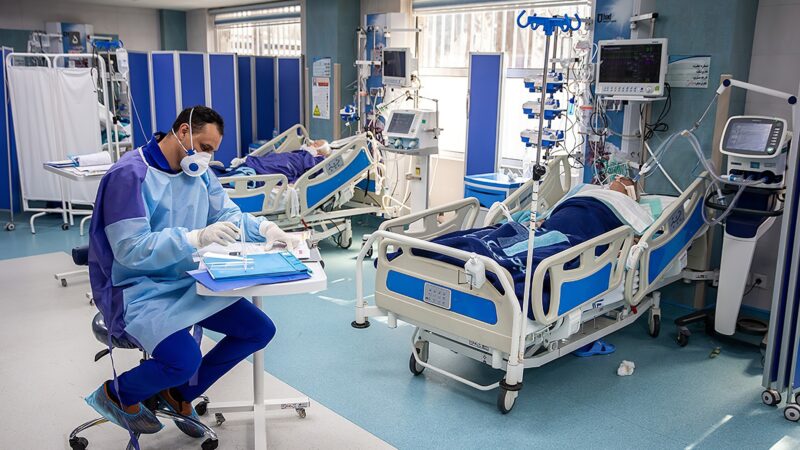Nearly 40% of intensive care staff are suffering from PTSD. Let's make their lives easier.

Dr. Onkar Sahota is a GP and Labour’s lead on healthcare on the London Assembly.
Our healthcare workers have now been at the frontline of the fight against COVID-19 for the past eleven months. This has been a deeply difficult time for everyone, but NHS staff have been facing the most difficult and traumatic period of their careers.
Our overstretched paramedics, doctors, nurses need to be able to go into work each day knowing that mental health support is available to them and that the Government is backing them. Without that, the implications for patients, and for addressing health inequalities, will be considerable.
This is why the Government need to put measures in place to strengthen our NHS workforce- as a decade of austerity had already pushed it to the brink before the pandemic began. This would be a pragmatic move to help reduce some of the insurmountable pressures that have been placed upon hospital staff.
My previous research showed that in the Autumn before the pandemic, we had over 10,000 permanent nursing vacancies in London alone. It is welcome that the Government have recently provided assurances that they are now addressing this urgent issue head on.
But their lack of investment in education and training, alongside previous policies such as public sector pays cuts and freezes and the abolition of the nursing bursary left our NHS workforce exposed in the face of a national crisis.
I don’t think any of us, from the outside, can imagine the day-to-day reality facing those working in our care homes and hospitals- especially in London where admission rates remain alarmingly high.
We must remember that alongside the huge task of caring for and rehabilitating those critically ill with COVID-19, doctors and nurses on our wards also take on a burden of the grief whenever a patient passes away, and they are usually the first ones to take on the difficult responsibility to inform family members.
For this reason, it has been in equal parts infuriating and heart-breaking to see healthcare staff on the receiving end of vile abuse from a small minority of people with the delusion that the pandemic is an elaborate hoax.
We rightly ascribe adjectives such as ‘heroic’, ‘stoic’ and ‘resilient’ to our NHS workers, but from a human, and also a practical perspective, it is critical that we acknowledge the long-term impacts of accumulative trauma, such as Post Traumatic Stress Disorder (PTSD).
The nature of trauma means that it can often “hide” itself from us and workers may well need trauma therapy but not be aware of it. We all have a responsibility for spreading awareness and encouraging friends and family members who have been on the frontline fighting COVID-19 to get the support that they need.
A study carried out at the start of the first lockdown found that, even at that point, half of all healthcare workers were suffering from trauma. More recent research by Kings College London published this year showed almost half of the 709 intensive care staff who took part in the study met the threshold for probable clinical significance for at least one of the following: severe depression (6%), PTSD (39%), severe anxiety (11%) or problem drinking (7%).
The latest NHS data shows that in September, almost 450,000 sick days were taken amongst its workforce for mental health-related reasons.
It has been positive to see that the NHS has committed £15 million to bring in both more short-term and long-term mental health services for workers for nurses, paramedics, therapists, pharmacists, and support staff.
But again, the point needs to be made that the Government has a further role to play in this. It has been galling to see the Chancellor’s delaying of a proper pay rise for NHS staff.
A recent survey carried out by Unison revealed that 9 out of 10 healthcare workers believe that a boost to the salary of at least £2,000 per year would improve morale amongst the workforce.
The London Economics consultancy has also recently shared its analysis that even a 5% pay rise would ultimately cost the public purse £330 million. This is less than the amount that Boris Johnson promised would be forthcoming to the NHS every week on our departure from the EU.
Whilst we should be pushing for something more substantial, this would be a small price to pay and a starting point to let our exhausted and beleaguered healthcare staff that they are valued.
Left Foot Forward doesn't have the backing of big business or billionaires. We rely on the kind and generous support of ordinary people like you.
You can support hard-hitting journalism that holds the right to account, provides a forum for debate among progressives, and covers the stories the rest of the media ignore. Donate today.



